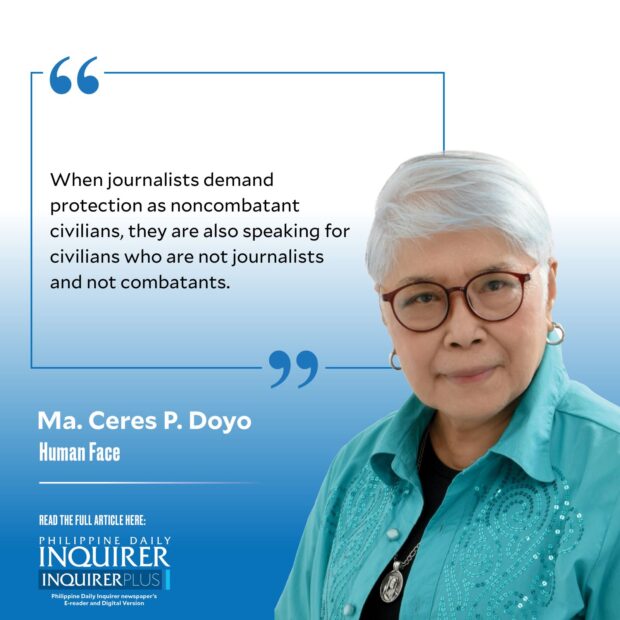Journalists among the Gaza war dead

No story is worth dying for, is a reminder I always keep in mind, because what story is there to tell if the storyteller is dead? Ah, but calculated risks can be taken in order to get to the truth and shout it from the rooftops, to borrow a biblical imperative. It is the shouting from the rooftops that often turns fatal for the harbinger of truth. Those who had taken those risks and made it out alive, those who had refused to keep still in the safety of their darkened rooms and had stepped into the trenches, they were also a fearful lot. Oh, yes. But they did not allow fear to get in the way. That is what courage means. The setting may not be a shooting war on the ground but also wars of a different nature, wars that separate the courageous from the faint of heart.
As of three days ago, at least 32 Palestinian journalists and media workers have been killed and several injured while others are missing in the war between Israel and the armed Palestinian Hamas militants in Gaza. This casualty count is from the International Federation of Journalists’ (IFJ) report which I receive regularly. Since Oct. 7, when Hamas made a surprise armed attack on Israel that killed more than 1,400 Israelis and took with them some 240 hostages, Israel has been retaliating with bombs without let-up, killing more than 10,000 (as of latest count) civilian Palestinians in Gaza, journalists among them. As the Israeli armed forces’ hunt for the armed Hamas continues, the bombing of civilian enclaves also continues, turning Gaza into a valley of death. No wonder the word genocide has come up so often and it is no hyperbole.
IFJ and the Palestinian Journalists Syndicate have condemned the killings and the continued attacks and call for an immediate investigation. Since the war began on Oct. 7, the number of fatalities among media workers has exceeded one a day, “a rate that is without precedent,” IFJ said. One dead media worker a day is one too many. And what do you call countless limp, bloody bodies of toddlers who call out for their mothers who are dead under the rubble? Also all in one day.
Established in 1926, IFJ is the world’s largest organization of journalists. At present, it represents some 600,000 journalists belonging to 187 unions and associations in 146 countries. So far, more than 80 journalists’ associations and unions all over the world have called “for the Israeli government to take explicit steps to protect the lives of journalists covering the war in Gaza, in accordance with international law.” For “the Israeli Defence Forces [to] rigorously observe international law that requires combatants to take all reasonable steps to treat journalists as civilians and to safeguard their lives.” I heave a sigh and say, well, if hospitals, ambulances, and shelters, along with the human beings working and sheltered in them, take direct hits and are blown to smithereens, surely journalists with their bullet-proof vests and protective helmets are not any safer from the same bombs and are just as vulnerable.
From IFJ general secretary Anthony Bellanger: “The number of media workers who have lost their lives in three weeks of conflict is unprecedented. This rate of attrition among media workers has deeply shocked journalists the world over. No one can watch the growing tally of fallen colleagues without mounting horror. We demand an explicit commitment from the Israelis that their armed forces will take every effort to ensure that the grim tally of journalists who had died in this conflict rises no further. This is simply unacceptable, and the Israeli government will have to accept its responsibilities.”
Israel’s military responded through a statement sent to Reuters and Agence France-Presse that it could not guarantee the safety of journalists in Gaza. It is short of saying, get out of the way, you. IFJ and its Palestinian affiliate denounced the statement, pointing out that “international law requires that all belligerents to protect civilians, in particular, journalists.” It cited Article 79 of the Geneva Convention that states that “Journalists in war zones be treated as civilians and protected as such, provided they play no part in the hostilities.” Contravention of this Article, IFJ said, would be a war crime.
Get this clear: When journalists demand protection as noncombatant civilians, they are also speaking for civilians who are not journalists and not combatants.
IFJ added that communication in Gaza, especially access to the internet, has often been unavailable. This, IFJ said, “[violates] the fundamental human right to seek, receive, and impart information and ideas through any media and regardless of frontiers.” IFJ’s Bellanger stressed that access to information and ideas reiterated in Article 19 of the Universal Declaration of Human Rights “underpins the journalist’s mission” that Israel must respect.
I turn to the Al Jazeera channel for on-the-ground, blow-by-blow reportage on the war. A mainstay on screen is a Palestinian journalist, with protective gear and all, reporting on the war and its casualties amidst chaos and the stench of corpses. I cannot help wondering if I’d see him the next day.
—————-
Send feedback to cerespd@gmail.com




















